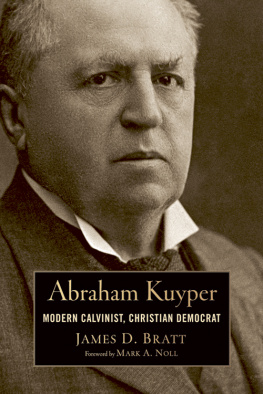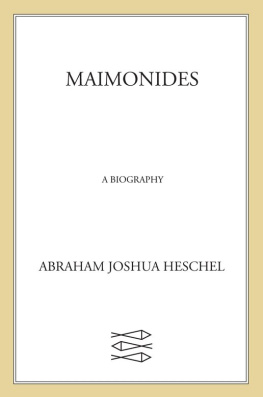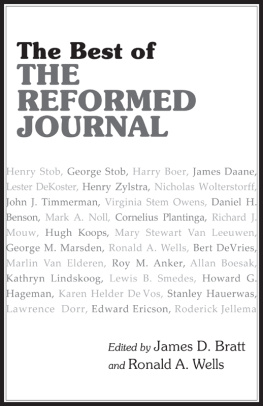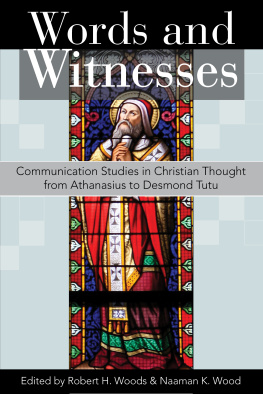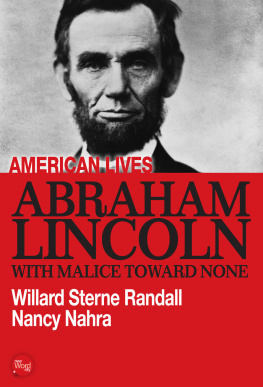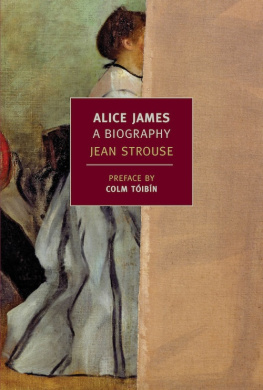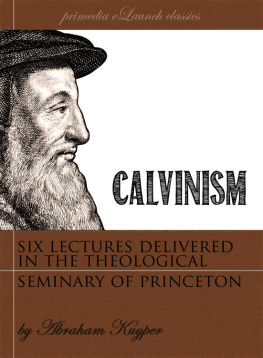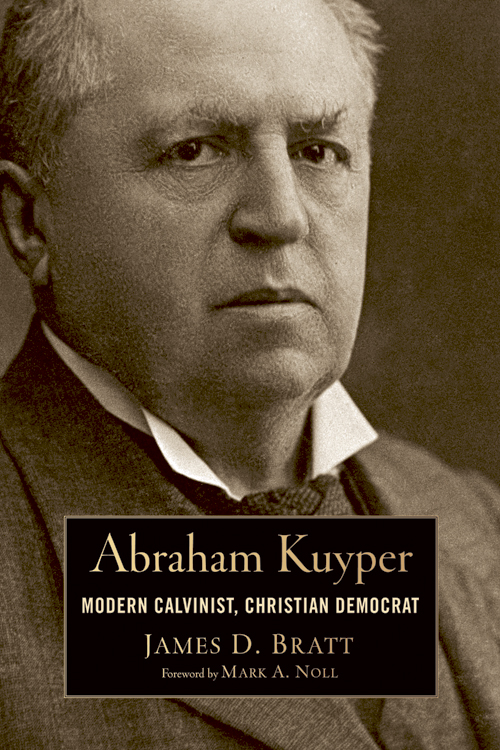
LIBRARY OF RELIGIOUS BIOGRAPHY
Edited by Mark A. Noll, Nathan O. Hatch, and Allen C. Guelzo
The Library of Religious Biography is a series of original biographies on important religious figures throughout American and British history.
The authors are well-known historians, each a recognized authority in the period of religious history in which his or her subject lived and worked. Grounded in solid research of both published and archival sources, these volumes link the lives of their subjects not always thought of as religious persons to the broader cultural contexts and religious issues that surrounded them.
Marked by careful scholarship yet free of academic jargon, the books in this series are well-written narratives meant to be read and enjoyed as well as studied.
LIBRARY OF RELIGIOUS BIOGRAPHY
William Ewart Gladstone: Faith and Politics in Victorian Britain
David Bebbington
Aimee Semple McPherson: Everybodys Sister Edith L. Blumhofer
Her Heart Can See: The Life and Hymns of Fanny J. Crosby
Edith L. Blumhofer
Abraham Kuyper: Modern Calvinist, Christian Democrat James D. Bratt
Orestes A. Brownson: American Religious Weathervane
Patrick W. Carey
Thomas Merton and the Monastic Vision Lawrence S. Cunningham
Billy Sunday and the Redemption of Urban America Lyle W. Dorsett
The Kingdom Is Always but Coming: A Life of Walter Rauschenbusch
Christopher H. Evans
Liberty of Conscience: Roger Williams in America Edwin S. Gaustad
Sworn on the Altar of God: A Religious Biography of Thomas Jefferson
Edwin S. Gaustad
Abraham Lincoln: Redeemer President Allen C. Guelzo
Charles G. Finney and the Spirit of American Evangelicalism
Charles E. Hambrick-Stowe
Francis Schaeffer and the Shaping of Evangelical America
Barry Hankins
Emily Dickinson and the Art of Belief Roger Lundin
The Puritan as Yankee: A Life of Horace Bushnell Robert Bruce Mullin
Prophetess of Health: A Study of Ellen G. White Ronald L. Numbers
Blaise Pascal: Reasons of the Heart Marvin R. OConnell
Occupy Until I Come: A. T. Pierson and the Evangelization of the World
Dana L. Robert
Gods Strange Work: William Miller and the End of the World
David L. Rowe
The Divine Dramatist: George Whitefield and the
Rise of Modern Evangelicalism Harry S. Stout
Assist Me to Proclaim: The Life and Hymns of Charles Wesley
John R. Tyson
Abraham Kuyper
Modern Calvinist, Christian Democrat
James D. Bratt
William B. Eerdmans Publishing Company
Grand Rapids, Michigan / Cambridge, U.K.
2013 James D. Bratt
All rights reserved
Published 2013 by
Wm. B. Eerdmans Publishing Co.
2140 Oak Industrial Drive N.E., Grand Rapids, Michigan 49505 /
P.O. Box 163, Cambridge CB3 9PU U.K.
Library of Congress Cataloging-in-Publication Data
Bratt, James D., 1949
Abraham Kuyper: modern Calvinist, Christian democrat / James D. Bratt.
p. cm. (Library of religious biography)
Includes .
ISBN 978-0-8028-6906-7 (pbk.: alk. paper); 978-1-4674-3736-3 (ePub); 978-1-4674-3703-5 (Kindle)
1. Kuyper, Abraham, 1837-1920. I. Title.
www.eerdmans.com
To
George Marsden and Ronald Wells:
mentors, colleagues, friends
Contents
11. Christian Democrat
T he interwoven questions that this splendid biography answers are, Who was Abraham Kuyper, and why should we care? Answering the first question is not easy, since Kuypers career was as filled with noteworthy achievement as that of any single individual in modern Western history. From his birth in 1837 in the Dutch seaport of Maassluis to his death in The Hague in 1920, Kuypers life encompassed an extraordinary range of enterprises. As only a partial list, he was a minister of the Dutch Reformed Church, the driving force behind a major schism in that church, a professor of theology, the long-time editor of a daily newspaper, the founder of the Netherlands first mass-based political party, an effective advocate for public funding of religious schools, the founder of a university, a much celebrated traveler in Britain and America, a member of the Dutch Parliament (and later Senate), from 1901 to 1905 the prime minister of the Netherlands, and throughout his adult life an absolutely indefatigable author on topics political, theological, cultural, and devotional. Somehow he also managed to fit time for several long collapses from nervous exhaustion that seemed only to bring him back with larger ambitions for longer agendas.
If Kuypers ideas had been entirely humdrum, his list of achievements alone would make him worthy of sustained attention. But since his ideas were well articulated beliefs that propelled his many activities, trying to answer who was Kuyper? requires full attention to his thought. He was first a convinced Protestant who held the image of Reformation guided by the word of God as the highest ideal. Almost as intensely he believed that the French Revolution had unleashed the most destructive forms of rationalism, individualism, and atheism imaginable. He inherited the instincts of European Christendom (and the assumption that all aspects of life needed to be held organically together), but was also committed to heartfelt personal piety (and so could write movingly about the work of the Holy Spirit). He believed that the creation in its fullest extent was a gift of God beyond imagining and that Christs redemption extended to the uttermost reaches of that creation. He matched his confidence in the New Testaments message of redemption in Christ with an equally firm belief that the Old Testament showed Gods intimate concern for family life, agriculture, politics, economic structure, warfare, international relations, and more. He was deeply committed to sphere sovereignty, the belief that God had organized the creation into discrete theaters of activity (family, business, art, education, church, state) with each one given specific purposes by the Creator and each possessing its own integrity. He held a positive conception of government, not as an all-purpose solution to every problem, but as the God-given sphere ordained to adjudicate disputes among other spheres, to defend the weak against the strong, and to maintain the states natural duties for developing infrastructure and promoting the general welfare. At the highest level, he held both that God had gifted all humanity with the ability to contribute meaningfully to the common good (common grace) and that regeneration in Christ created a community, a mind, a predisposition, and a sensitivity utterly opposed to everything of the world (the antithesis).
The vigor of Kuypers convictions, along with his strenuous efforts at putting them into practice for religious, educational, and political purposes in the Netherlands and with the significant numbers around the world who have found his ideas inspiring makes him a figure of world historical significance. It also means that a biography like this one must be done with care, so that readers come to understand Kuyper in his own life context as well as the influence his ideas have had. The range of that influence is noteworthy as a contributor to European Christian Democracy, a beacon for Dutch immigrants in many parts of the world, a figure used to justify South African apartheid, a guide for many leaders of evangelical higher education in America, a special inspiration for modern Christian philosophers, and a stimulus with his concept of worldview to active culture warriors in our own day.
Next page
